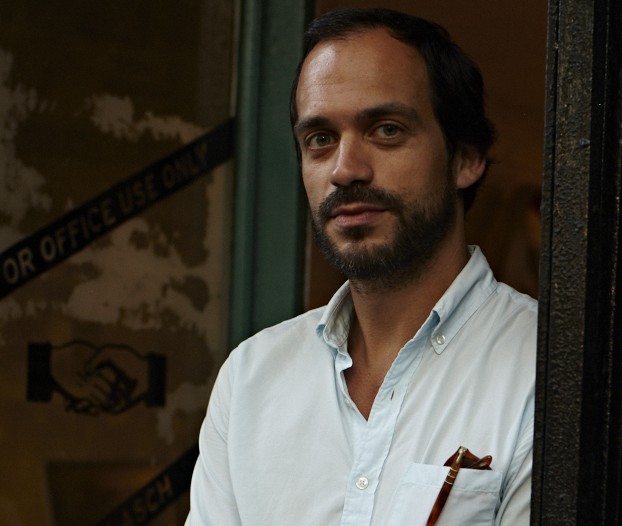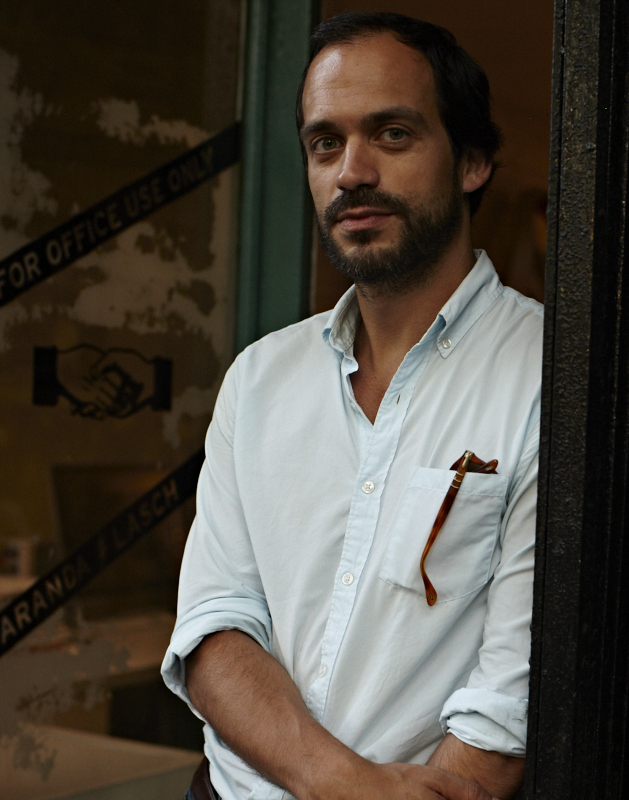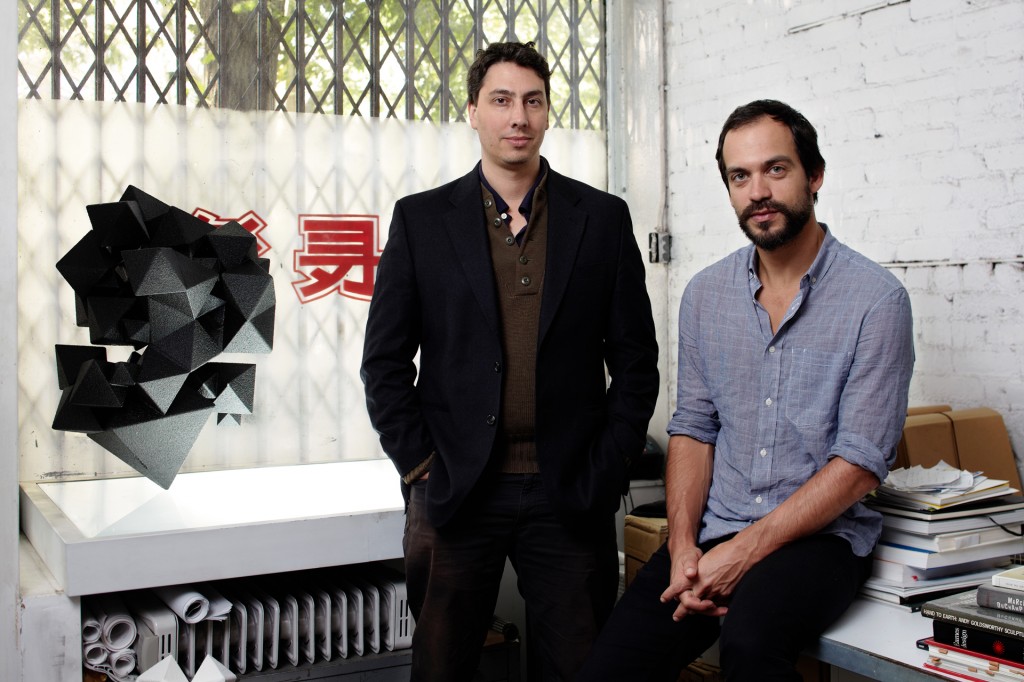Benjamin (Ben) Aranda (born 1973) received his Masters in Architecture from Columbia University in 1999 and his B.A. in Architecture from UC Berkeley in 1995. As a student, he met Chris Lasch in their final design work at Columbia: they then founded Aranda\Lasch, an architectural studio devoted to experimental research and architecture. The studio is located in Tucson and New York City. Winners of the United States Artists Award and Young Architects Award, their early architectural projects are the subject of the book, Pamphlet Architecture #27: Tooling. Aranda\Lasch have exhibited their work internationally in galleries and museums including the MoMA, Venice Biennale, Design Miami, TBA-21 and Johnson Trading Gallery. They are currently completing buildings in Miami and Gabon and exhibiting at Museum of Arts and Design (New York), Gallery All (Beijing), ZKM Karlsruhe, and the Andrea Rosen Gallery in New York.
How much do you work as a designer and how much as an architect?
I’m an architect every day all day. The furniture and objects we do are small buildings.
What is the relationship between your work as an artist and your work as an architect?
We are architects. We never call ourselves artists but we tend to align ourselves with the way artists talk about their work as something that brings difference into the world. There has long been an implication in our discipline that advanced architecture is needed, and to some extent that’s true, but we are weary of the frivolity that emerges from this production. Instead what is needed is to consider what kind of architecture can undermine our stable view of the world. We don’t see what we do as an advancement, or moving forward, but rather as a disruption.
Why your objects are so ruled by geometries and fractals? Which are the favourite customers and the kind of homes you would love seeing them with and in?
We don’t consider these objects ours. We are not inventors, we are architects that give physicality to things that are abstract. They may not be visible but that doesn’t mean they weren’t around before us. We like to think of our work as an extension of others, whether they be artists, scientists, or anything else. Another step along the way.
Which encounters do you normally have in your daily work? Please make a portrait of one of these
It’s important to start the day in a good mood with the right coffee and conversation. Beginnings do matter. The rest of the day is a horrible mess…
How hard is it to start an entrepreneur activity today in your city?
New York is hard and I think all New Yorkers place a certain pride in being able to do their thing here. But we also have an office in Tucson and it’s hard there as well. So I’m beginning to think New Yorkers are just more vocal about their hardships.
What your city is giving to you and vice versa?
I met a beautiful girl here that I’m going to marry. I met my partner Chris Lasch here. I’ve got family here that I love. New York has given me a lot. In return I give New York everything I earn and you know what it’s never enough and it couldn’t care less.
Describe a fantastic happening you have had in recent time?
I saw the northern lights in Iceland a month ago. That was fantastic.
Which is your favourite wine or drink?
Currently it’s Brennevin (a typical Islandic distilled beverage). See above.
Can you share your favourite cooking passion?
I like eggs. I mean, I like cooking a lot of stuff but making eggs in the morning makes me feel at home.
In which way do you try to live “slow” in New York?
Eggs, friends and family.
Which is a talent you have and the one you miss?
I do miss the guitar but I was not that good and those days are over.
What have you learnt from life until now?
Can I answer this later in life?


